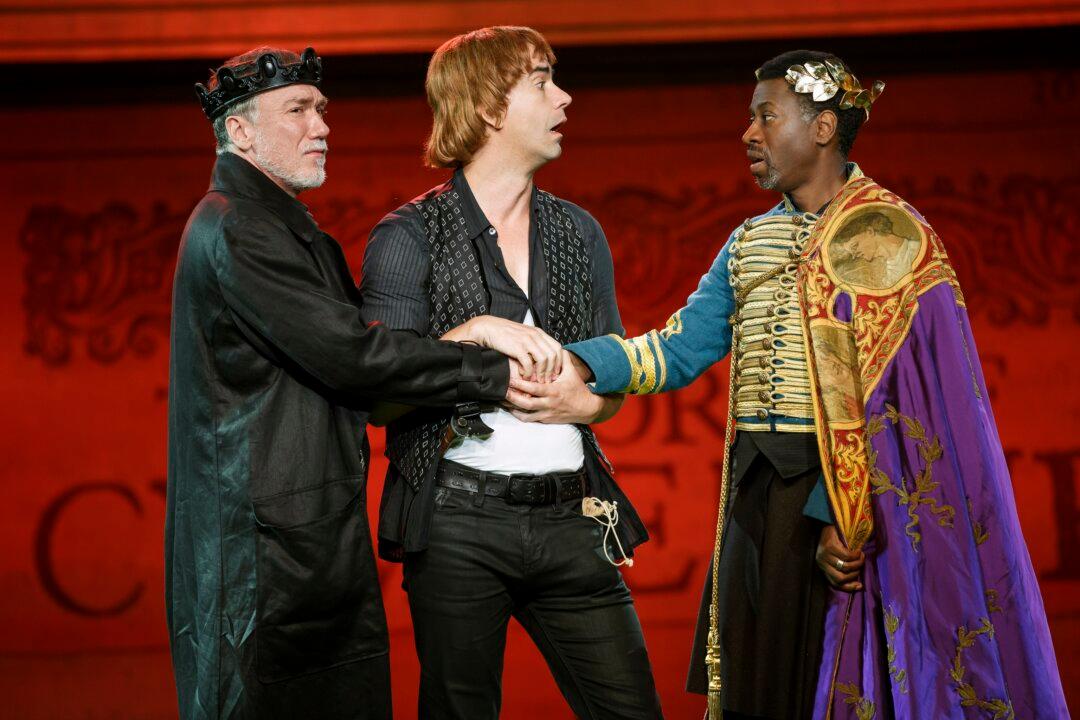NEW YORK—Comedy and drama are often presented as both sides of the same coin, and indeed, some instances can be terribly painful in one aspect and terribly funny in another. The Public Theater’s absolutely brilliant production of William Shakespeare’s “Cymbeline,” now at the Delacorte Theater in Central Park, makes this clear.
Usually played more or less as a straight drama (as was the case with the last Broadway revival in 2007), this production goes a much lighter route. The Bard’s outlandish plot seems even more so, while the serious elements of the show remain intact.





